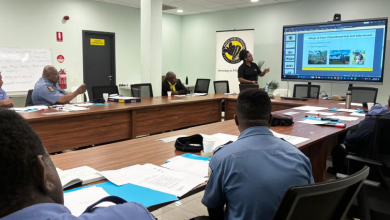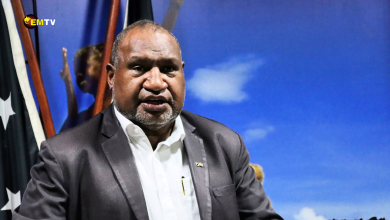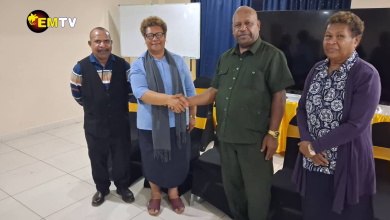In support of the implementation of the National Disaster Risk Reduction Framework (NDRRF) 2017 – 2030 launched by Minister for Inter-Government Relations and Member for Wewak, Kevin Isifu on the 16 February 2019, the PNG National Disaster Centre (NDC) in close collaboration with United Nations Development Programme (UNDP), United Nations International Strategy for Disaster Reduction (UNISDR) and Asian Disaster Preparedness (ADPC), organized series of training workshops in Port Moresby.
Focused on NDRRF/Sendai Monitor and Reporting Tool, the training took place at the National Disaster Centre on the 01st – 03rd of April and attended by more than 20 representatives from various Government departments, academia, development partners, international and national non-government organizations (NGOs), faith-based organizations, civil society organizations (CSOs) and the private sector.
In his opening Remarks, the Acting Director for NDC, Mr. Martin Mose welcomed all participants and stressed that “The Government of PNG, through the National Disaster Centre (NDC) and Technical Agencies, remains committed to reducing the risks of disasters at the national and sub-national level through research, development of policies and framework, and continued support to risk reduction at the community level. This commitment from the Government is evident in the recently endorsed National Disaster Risk Reduction Framework (NDRRF) 2017 – 2030. The implementation of the Framework will support disaster risk reduction efforts and increase resilience of our communities. This will significantly contribute towards achieving the Sustainable Development Goals (SDGs) in the country.”
Mr. Mose also recognized and acknowledged the role of Development Partners such as the United Nations and members of the Disaster Management Team (DMT): “I would like to highlight here that Australian Government, who continuously supports DRM efforts in PNG, including this training workshop, which is organized in the framework of our joint DRM Project with UNDP. At the same time, I acknowledge the role of all our partners, who are always in the forefront working with the communities in reducing disaster risks and enhancing resilience,” said Mr. Mose.
“In the wake of Climate Change, Papua New Guinea continues to experience disasters of increased frequency and magnitude impacting the lives of ordinary Papua New Guineans, our economy, environment, and infrastructure. UNDP remains committed in supporting Government of PNG through investments in disaster risk reduction efforts, including the implementation of the National Disaster Risk Reduction Framework, which will contribute to the reduction of risk of disasters and loss of lives,” said Mr. Edward Vrkic, UNDP Senior Climate Change Advisor.
Ms. Stephanie Werner, First Secretary from the Australian High Commission acknowledged the efforts of the PNG Government, development partners and all other stakeholders in their commitment in reducing the risk of disasters in PNG. Australia stands ready to continue supporting the Government of PNG and other stakeholders focusing on reduction of disaster risk while enhancing disaster preparedness and humanitarian response at the national, provincial and local levels.
The implementation of the Framework is equally important as the reporting. Therefore, these series of training and workshops, planned for this week are to build and enhance capacities of key Government agencies, development partners and stakeholders to understand the reporting requirements under Sendai Framework for Disaster Risk Reduction, identify their respective roles and responsibilities including the significance of disaster data collection and reporting. The discussions from the workshops and training will guide NDC to the development of the Action Plan for the implementation of the National DRR Framework with technical support from key partners.
Source: Press Release – PNG National Disaster Centre






